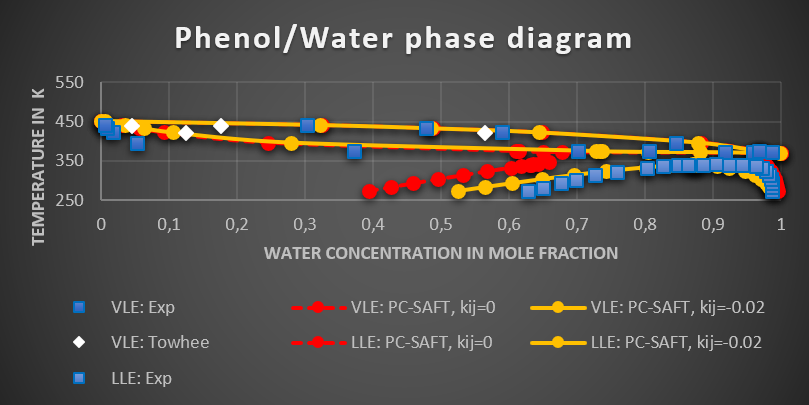Many applications of Ionic liquids, refrigerating liquids, additive formulations and especially solvent based systems depend on understanding the phase behavior of the chemicals involved. Solvents account for more than 80% of the total mass used in any organic reaction, and about 80% of the waste it produces. To successfully replace conventional solvents by environmentally friendly ones again requires knowledge of the phase behavior. We will outline how these challenges can be addressed with MAPS and have the honor of hosting Prof. Edward Maginn from Notre Dame University. He will showcase the use of Monte Carlo simulations with Cassandra to address above applications.
The examples presented will demonstrate how to translate a real-life problem in a simulation strategy applied on the digital twin of the product of interest. In particular:
- Permeation of gases in ionic liquids
- Phase equilibrium simulations of industrially relevant molecules (refrigerants, solvents, gases)
- High throughput estimation of vapor pressure

Figure 1. VLE curve of Phenol/Water at various temperatures and atmospheric pressure.
Using Molecular Carlo Simulations with Cassandra to Compute Thermophysical Properties and Phase Behavior of Industrially Relevant Systems
Edward Maginn
Keough-Hesburgh Professor
Department of Chemical and Biomolecular Engineering
University of Notre Dame
Notre Dame, IN 46556 USA
Abstract: Atomistic Monte Carlo (MC) simulations offer some advantages over molecular dynamics (MD) for certain properties and systems. In particular, MC simulations are well-suited for calculations of phase equilibria because open ensembles (i.e., ensembles that include particle insertions and deletions) are much easier to implement in MC than in MD. My research group is active in the development of new MC methods as well as the application of MC to computing thermophysical properties of fluids. Around 15 years ago, we noticed that there were very few open-source general MC codes available, and so we developed and released the code Cassandra. Cassandra was built from a collection of “academic” codes and required a fair amount of expertise and patience to get it to run. A few years ago, we started working with SCIENOMICS to develop a plugin for Cassandra within MAPS to simplify the use of Cassandra.
In this talk, I will describe the basic features and capabilities of Cassandra, and then show examples of the application of Cassandra to a range of problems, including: computing vapor-liquid equilibria of hydrofluorocarbons, simulating adsorption of gas mixtures in zeolites, combining MC and MD approaches to model permeation of gas mixtures in supported ionic liquid membranes, computing the solubility of gases in ionic liquids, and estimating the vapor pressure of 150 different hydrocarbon isomers.
